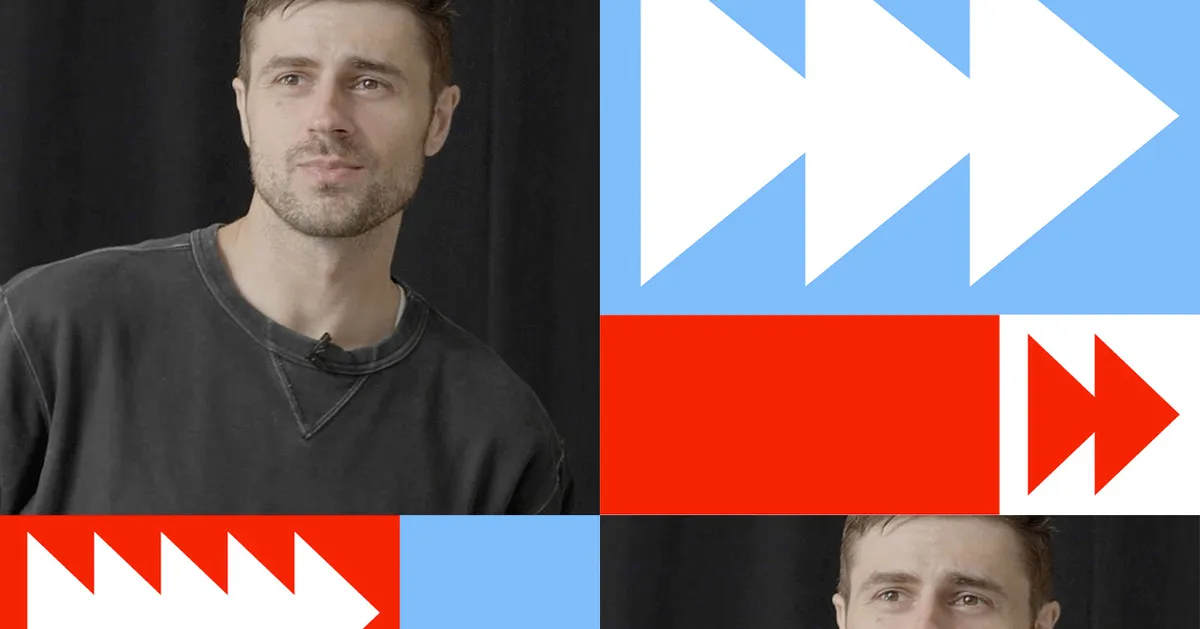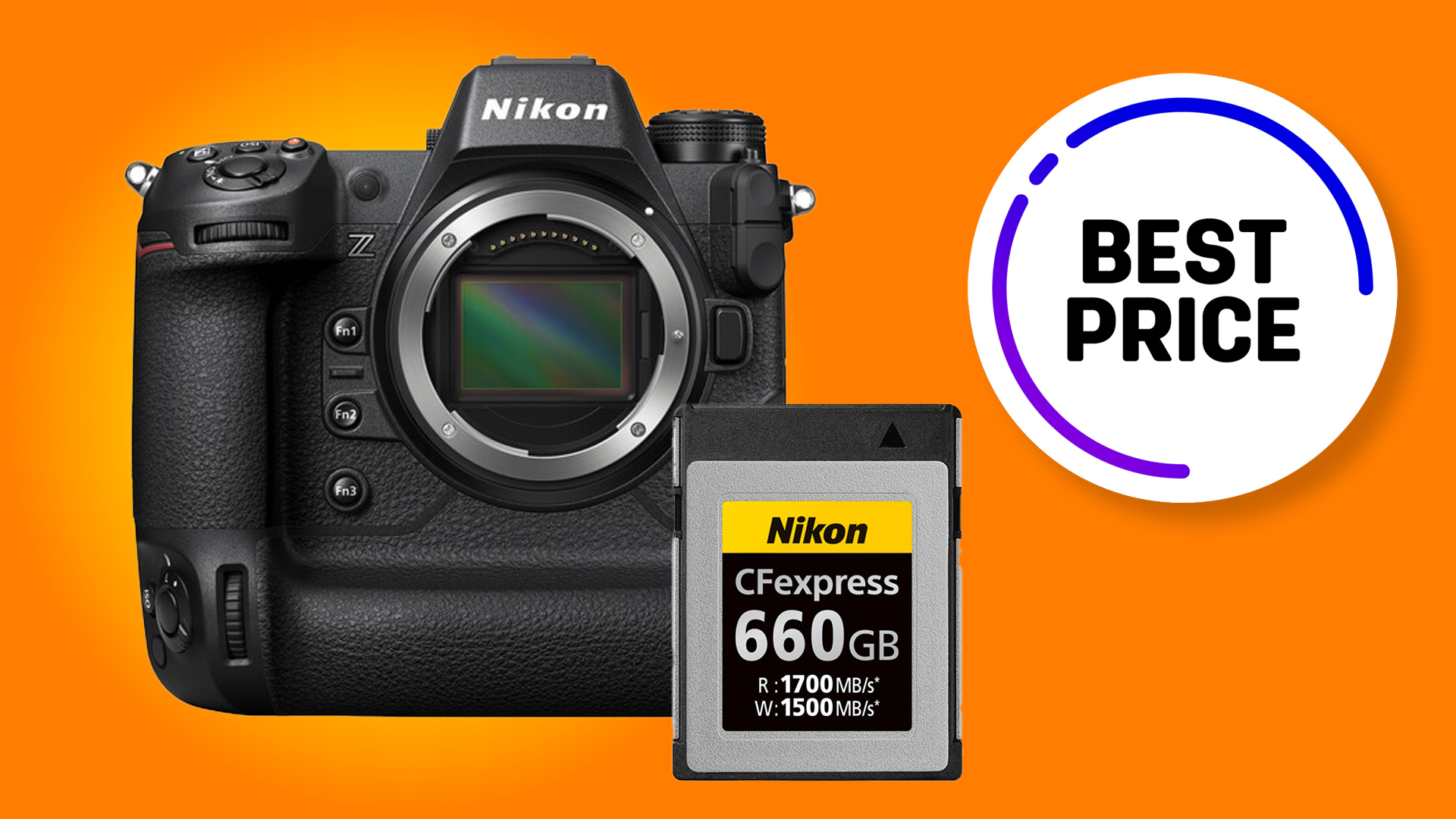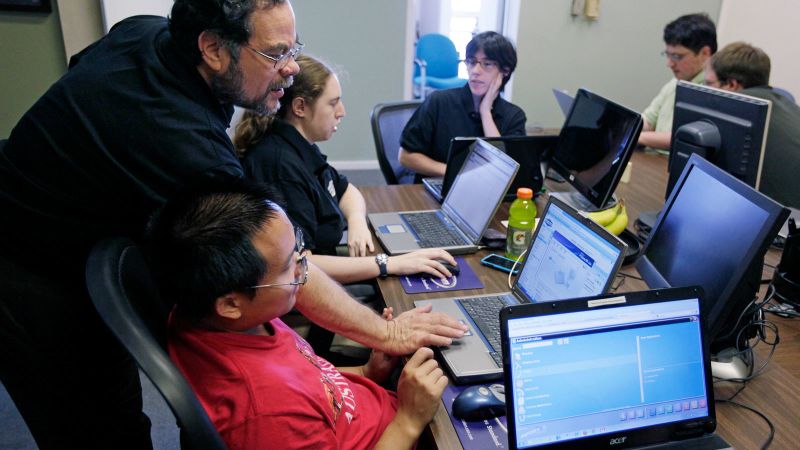
“As long as I’ve been looking into this stuff, since 2016, there has been this prolonged or delayed sense that what happens on the internet is not real,” said Joshua Citarella, the host of the Doomscroll podcast, during our conversation the same morning 22-year-old Tyler Robinson was arrested for the alleged murder of conservative influencer Charlie Kirk. At the time, early reports and social-media posts speculating Robinson’s motivations and ideology were flooding feeds, some declaring him an anti-fascist radical and others a white nationalist Groyper based on the messages engraved on shell casings and his digital footprint seemingly being influenced by memes. Less than a couple of weeks after Citarella and I spoke, Joshua Jahn, the 29-year-old who opened fire on an ICE facility in Dallas, Texas, was described by former friends as an “edgelord” whose “4chan” sense of humor alienated him from the people in his social circles. “These things have been very real and very influential for a long time,” Citarella says, “and now we’re going to just see a dam break of all of the internet discourse, all of the way that internet culture is shaping politics.”
Citarella is a New York–based artist and culture researcher whose research since 2016 has explored the radical political ideologies and digital subcultures of young people online. In 2018, he self-published a long-form essay that followed a group of teenagers on social media as they became radicalized by climate change. He’s interviewed teenagers who identify as post-Marxists, anarcho-capitalists, former eco-fascists, and other identities from all over the political compass. He’s streamed invite-only lectures during which members watch as he goes through a syllabus filled with topics like “the Trotskyist to Neocon pipeline.” Although he’s long been one of the few people who understand how the extreme views that young people express online have shaped outcomes in the real world, his audience, until recently, had been small and niche. “I feel like the point of the work since I started publishing was to say, ‘Hey, look, pay attention to this. This is important. And it could be really bad,’” he said. “Now, it’s just undeniable, and I think it’s honestly a little bit too late.”
But it’s Doomscroll, the long-form documentary series in which Citarella conducts one-on-one interviews with influential voices in American politics, that has broken through to a more mainstream audience. Since the beginning of the year, I’ve had friends share clips of Citarella joking with streamer Hasan Piker over whether lifting weights turns one into a fascist, talking about the “political perverts” on the left with writer and podcaster Amber A’Lee Frost, and going over comedian Adam Friedland’s Twitter spat with Chelsea Clinton. The guests have included a range of academics (Vivek Chibber, Catherine Liu, Francis Fukuyama), journalists (Andrew Callaghan, Krystal Ball), commentators (Briahna Joy Gray, Kyle Kulinski), and entertainers (Tim Heidecker, Matty Healy). While most of his guests operate on the left side of the spectrum, he has also interviewed guests from different areas of the political compass, such as the blogger Aella, to discuss libertarian transhumanism and robot girlfriends. What separates Doomscroll from other independent political podcasts, aside from the high-production value and tight editing, is Citarella’s sincere interest in his subject’s views, whether it’s Ezra Klein’s Abundance agenda, Dasha Nekrasova’s lack of convictions, or Daniel Keller’s belief that we’re sleeping on humanoid robots. When I mention how Klein seems to frustrate a lot of people on the left, he said, “I’ve built up a lot of antibodies that, if I’m not going to get triggered by literal teenage Nazis sending hate messages all day, I’m not going to get triggered by a center-left Democrat.”
While Citarella is proud of the series, his work getting noticed by the mainstream does come with some baggage. “It’s terrible incentives, right? Because your reputation and career rise as things get measurably worse in the real world,” he said when I asked him how it feels to gain attention as the niche online cultures he’s spent years studying are spilling out into the real world. “I’d be happier to have less visibility for my career, just live in a social democratic, competently organized country. I’d prefer that I’d probably be actually in better health, and my finances would be more stable.” It’s the kind of prefiguration I notice throughout our conversation, Citarella’s ability to clearly see our reality while also having the imagination for what could come next, and how, as you’ll see in his selections below, it’s a reflection of his media diet. Here is what Citarella has been listening to and watching.
TrueAnon
“TrueAnon, The Adam Friedland Show, Brad Troemel — these are people who, whenever the new episode comes out, that’s just part of my media diet. There’s a synthesis of people from outside mainstream institutions who are trying to make sense of the world and to do so in a way that is truly independent. It is extremely rare that anyone is actually funded by subscribers or is really independent. I also think that they have the best intersection of internet comedy and rigorous commentary. There is a TrueAnon deep cut about Marc Andreessen and the e/acc movement where Liz Franczak goes fucking deep into Immanuel Kant, Nick Land, Accelerationism — that is the weirdest, deepest one that is my favorite. She just goes for the whole hour to explain what the fuck Nick Land is talking about, and it’s brilliant. They’re also just some of my favorite people to hang out with. You kind of get a feel for who’s a character in this space and who you can actually trust, and I very much trust the TrueAnon people.”
New Models
“I should mention that for the past four years, the podcast I’ve been closest to is called New Models. We’re both refugees from the art world who went out onto social media, Patreon, Substack, and launched our own kind of independent commentary. When I first started doing this kind of trend casting political research, the only people that I could talk about this stuff with were Caroline Busta and Julian Wadsworth from New Models. I had a lot of conversations with New Models over those first four years tracking these different groups — rising Gen-Z anarcho-primitivism, transhumanism — these questions that are now becoming not just a thing of science fiction and imagination but practical political questions.”
The Art Angle
“If we’re being honest, most people don’t care about contemporary art and for a whole variety of good reasons. That said, there are a few books, works, videos, and essays that came from within the art world that could not have occurred anywhere else. Those insights can be incredibly valuable. You can’t talk about art without analyzing class structure and value systems. I think you can learn a lot from art if you have the right approach. Ben Davis and Kate Brown are some of my favorite writers and hosts on The Art Angle from Artnet News.”
Breaking Points With Krystal and Saagar
“We recently put out an episode with Krystal Ball, who is the co-host of Breaking Points, a very large political podcast. They have a conservative co-host, Saagar Enjeti, and a progressive co-host, Krystal Ball, Monday through Thursday. And on the Friday show it’s Ryan Grim, a progressive journalist, and Emily Jasinski is the conservative co-host. In terms of getting the daily news, that is usually my first stop. Obviously there’s a hyperpolarization, so the question is how do you reconstitute some type of consensus politics if you are in some way hopeful for democratic society to continue. I think Breaking Points is the best synthesis that we have of majoritarian politics. What would constitute an electoral majority from both the left and the right, given all their disagreements, but what are the things that they can actually align on?”
The Ezra Klein Show
“On the center, I will listen to Ezra Klein and Bill Maher. I’ll try to stay in touch with those channels to get an overview from right center and left. I’ve spent my entire adult life trying to understand what happens after neoliberalism. What Ezra has, I think, correctly noticed is a cresting of the wave in neoliberalism and a reinvestment in an interventionist hand in the economy on behalf of the state that is happening in ways that may be better and worse.
“A quiet undiscussed thing, which has not really been brought up in the critiques of Abundance, is geopolitical competition with China, which is going to be the driving force of 21st-century politics, and that is what is forcing this Neo New Deal state-led investment to start happening. If we don’t accept that, it is going to be nearly guaranteed to be entirely invested in the American military-industrial complex. So I would vastly prefer that it goes to green energy and medicine and all sorts of other things.”
And some television …
Alien: Earth
“I’ve been watching Alien: Earth. I watched all of the Alien series. In that vision of a distant, distant future, there is no public sector or state in those societies. They are giant, not just transnational, they’re like trans-solar system, galactic corporations, which structure these private statelike entities in which people basically have no semblance of civil rights; they have employment contracts. That kind of fully privatized model is horrifying, but also I think in some ways a very realistic vision of what we’re moving toward. So yeah, I take all of those films seriously.”
Say Nothing
“I wanted to mention this series called Say Nothing that is about the IRA that I just started watching. Phrased very diplomatically: Ireland is an apartheid society that was colonized that has a certain resemblance to another situation happening right now. Obviously Irish people are extremely supportive of the Palestinian struggle. Seeing those two things happen alongside each other I think is maybe helpful for American audiences to understand because one is present and they’re unfamiliar with its history, and another is in the past, and they’ve had more time to learn about it and to contextualize.
“Most compelling about the storytelling to me — if I can ruthlessly shit on the left for a moment here, because all of left political discourse is just horribly structureless and disorganized, and that is somehow held up as a value and as proof of realizing its own success as a political project, and I think it’s actually evidence of its dysfunction and its failure — to see [Say Nothing’s] depictions of radical movements that are hierarchical in which people follow orders, they’re disciplined, and there’s an adherence to a rigid hierarchical structure is maybe a necessary learning experience for people who hope to go up against the most hierarchical and powerful structures that have existed in the history of human society. We’re not going to topple those hierarchies by being a kind of leaderless, horizontal mass movement. It’s going to take rigor and discipline and adherence to rigid instruction at times. So seeing the degree to which people are devoted to a cause is, I think, very inspiring.”



